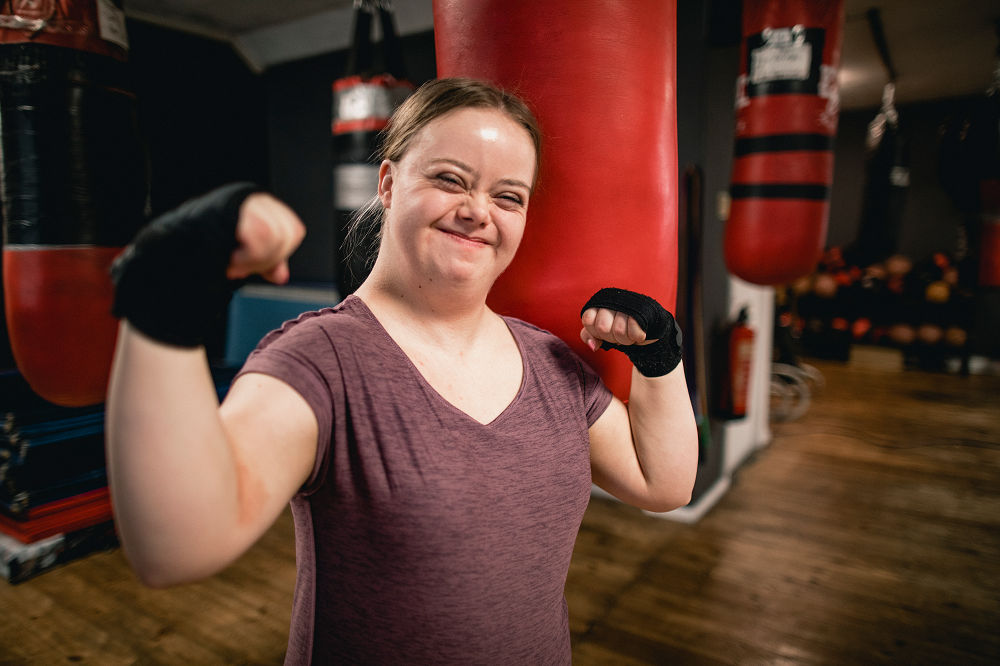Prioritizing 3 Fit Principles: Working with Individuals with Intellectual Disabilities

Through the lens of a health coach or exercise professional, it is easy to see the need for more physical activity and less sedentary time, a healthy dietary pattern and adequate hydration. These are the basics of a healthy lifestyle. While statistics for obesity and chronic disease are rising, individuals with intellectual disabilities (ID) face a greater challenge than the general population. People with ID have higher rates of overweight and obesity, as high as 1.5 to two times higher. They also have a higher prevalence of chronic diseases, including cardiovascular disease, diabetes and asthma. Lastly, they are less likely to eat a balanced diet.
These statistics do not stem from lack of motivation, but lack of knowledge and resources. As health coaches and exercise professionals, it is important to learn about the basic principles of working with individuals with ID. Through training and increasing knowledge, you can become a key leader in making an impact on the health of individuals with ID.
Special Olympics has created the FIT 5 program to help individuals with ID focus on enhancing their health and fitness in three key areas: physical activity, nutrition and hydration. These principles can be used to help build programs to meet the needs of people with ID. Here are three ways that you can help prioritize the overall health and fitness of individuals with ID by using the FIT 5 principles:
-
Exercise 5 days a week.
When working on exercise programs for people with ID, it’s important to prioritize endurance, strength, flexibility and balance. Incorporating these types of exercises will help you effectively build a workout program that meets your client’s needs.
-
Eat 5 total fruits and vegetables per day.
Helping your client with ID make better food choices can be imperative to their progress. Guiding your client by providing nutrition advice while staying within your scope of practice, such as prioritizing fruits and vegetables, will help your client with ID to know how to add healthy food options to their diet. Special Olympic athlete Abe Assaad explains how his personal trainer helps him make healthy choices: “My trainer is always bringing me a new fruit or vegetable that I have never tried before. I found out I really like star fruit and brussels sprouts. I never have wanted to try them until he tried them with me.”
-
Drink 5 water bottles per day.
Hydration guidance will be beneficial to clients with ID to help them understand how much water they should be drinking in a day to fuel their body. Explaining the importance of hydration will help your client with ID prioritize drinking water to optimize their training and health.
ACE and Special Olympics have partnered to help educate health coaches and exercise professionals to meet the needs of individuals with intellectual disabilities by creating the free Special Olympics Inclusive Fitness Training Course. This course will help you understand basic adaptations and strategies for working with people with ID.
Credit: Prioritizing 3 Fit Principles: Working with Individuals with Intellectual Disabilities
